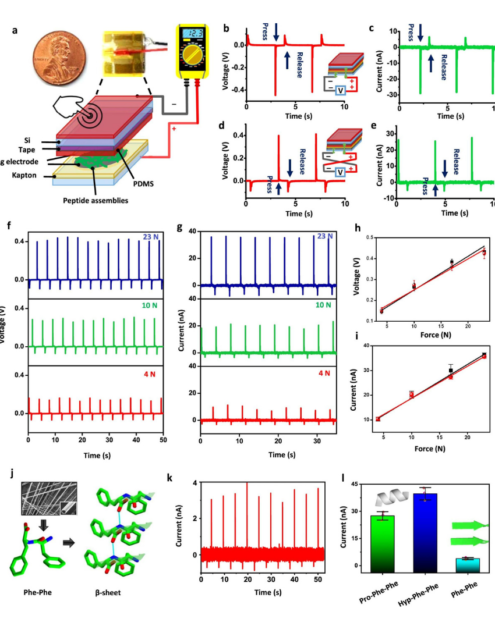Israeli researchers have been working on a new material that may serve as an energy source for future military biological implants. The material could power these devices for a practically unlimited amount of time using the movements of the human body. These advancements may prove to be extremely useful to militaries, as more and more focus is being placed on biological augmentation.
Currently, this technology is limited by the lack of a reliable, safe, and long-lasting power supply.
Biological implants are still in the early days of development, but will likely become vital tools for the modern soldier in the not too distant future. Implants may be able to improve a soldier’s senses, allow silent communication, monitor the soldier’s health, and analyze exposure to diseases and toxins.

However, this technology requires power, something that is difficult to supply in the human body. A power supply must be safe to the body and last a long time, as you can’t simply plug and unplug a fully charged battery. It also needs to be reliable enough to survive within the body and the circumstances the body may find itself in, which is particularly important to soldiers.
At the moment, a power supply that checks all these boxes does not exist, but this new material may change that.
A future power source
It has been engineered by Israeli engineers and is based on collagen, the most plentiful protein in the human body. It is found in bones, skin, tendons, and muscles. It makes up the bulk of connective tissue, therefore it is very strong and flexible, making it popular for plastic surgery and other types of medical procedures.
Unfortunately, this protein is complex to work with, and progress in this field has been relatively slow.

A breakthrough came in 2019 when an Israeli scientist, Ehud Gazit, and his colleagues at the Tel Aviv University used nanotechnology to engineer a new collagen-like molecule. They published a study in April of 2019 that detailed their research.
The team has only recently discovered the potentially ground-breaking use for this new material: energy.
How it works
The team explained in the journal Nature Communications: “The large number of directionally aligned hydrogen bonds in the helical structure [of collagen] creates a macroscopic dipole that can couple with external electric fields and shear force to produce the piezoelectric response of collagen.”

In layman’s terms, the shape of the hydrogen bonds can act as an antenna for the electricity generated by the normal movements of the human body.
The human body naturally creates relatively weak electrical fields when moving. Although it’s very small, it’s there, and researchers believe this may be enough juice to power biological implants, providing it can be harnessed.
More from us: An English Electric Canberra Flies Again!
As mentioned, alternative sources of power for implants come with a host of potential problems, so using the body itself to power them would be extremely useful. This technology would allow the implants to be powered as long as the body is moving.
Time will tell if this material will become the power source for implants of the future.
